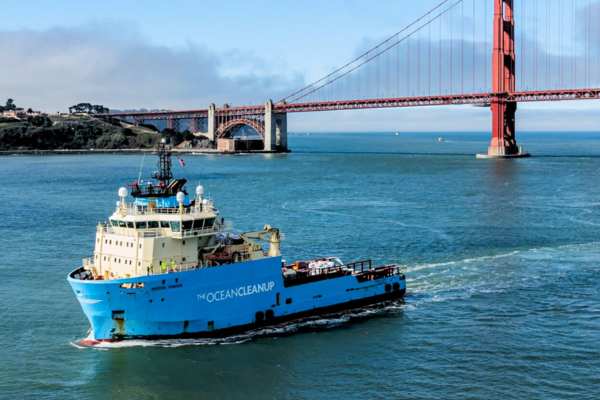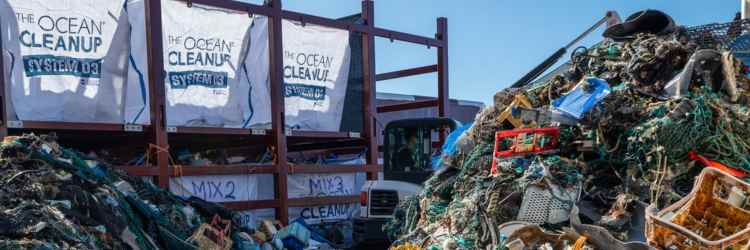The cost of cleaner oceans
The Ocean Cleanup puts a dollar figure on the removal of the Great Pacific Garbage Patch.

The Ocean Cleanup has revealed that the Great Pacific Garbage Patch could be 'relegated to the history books' within a decade.
It also presented the possibility of an accelerated timeline of just five years for a price-tag of US$4bn if the world unites behind its cause.
This marks the first time a clear cost and timeline have been associated with the ambitious goal of cleaning up the vast expanse of plastic pollution that is drawn into the Pacific trash vortex.
This enormous glut of plastic represents one of most pressing problems facing our oceans and The Ocean Cleanup (TOC) estimates it costs up to US$2.5 trillion per year in damage to economies, industries, and the environment.
In the six years since TOC sailed its System 002 from San Francisco with a goal to rid the world’s oceans of plastic, it says it has collected over 450 tonnes from the patch.
"This environmental catastrophe has been allowed to exist, unresolved, for too long, and for the first time, we can tell the world what it costs, what is needed and how long it could take."
Although that represents just 0.5% of the total plastic from the patch, it is evidence that the problem is solvable, the non-profit says.
By using the latest data and modelling, TOC believes it now has the know-how to “relegate the Great Pacific Garbage Patch to the history books” in as little as five years - compared with the 10-year timeframe at its current level of performance, and at an estimated cost of US$7.5bn.
The Ocean Cleanup is urging global stakeholders - including governments, corporations, and individuals - to help shrink the timeline.

“We have shown the world that the impossible is now possible. The only missing thing is who will ensure this job gets done,” TOC founder and CEO Boyan Slat said.
“This environmental catastrophe has been allowed to exist, unresolved, for too long, and for the first time, we can tell the world what it costs, what is needed and how long it could take. It is time for action.”
In 2025, the organisation will take a one-year operational pause to launch a new initiative aimed at identifying high-concentration areas of plastic. It said this hotspot hunting project aimed to optimise future extraction efforts, making them more efficient and impactful.
The Ocean Cleanup develops and deploys large-scale systems to efficiently concentrate plastic for periodic removal. The plastic is tracked and traced to certify claims of origin when recycling it into new products. It has also developed Interceptor solutions to prevent plastic escaping from rivers before it reaches the ocean. The organisation says it has collected over 12 million kilograms of trash from aquatic ecosystems around the world.





